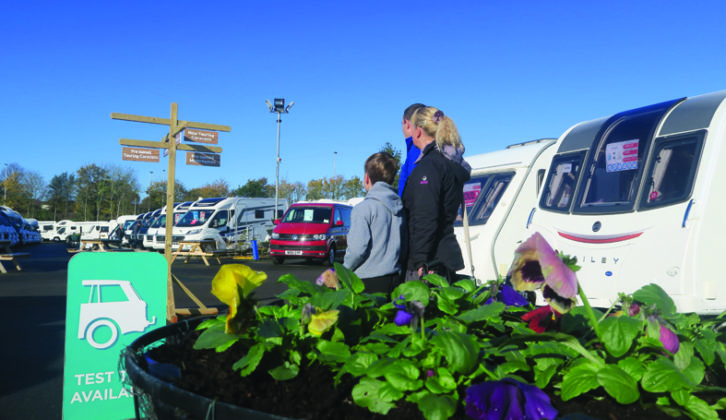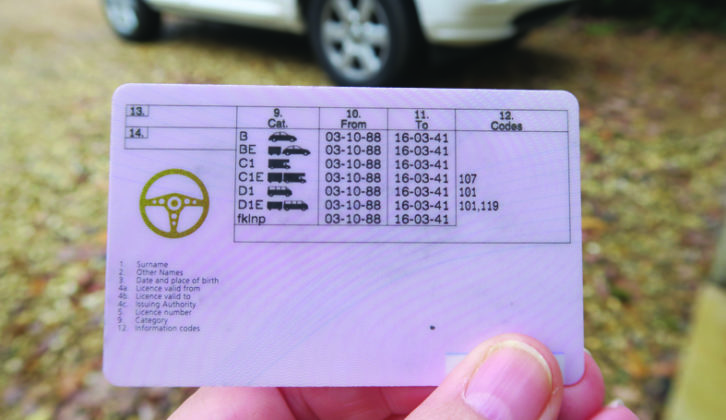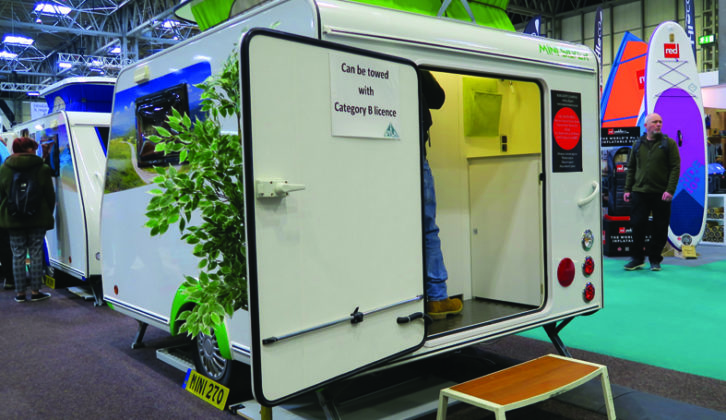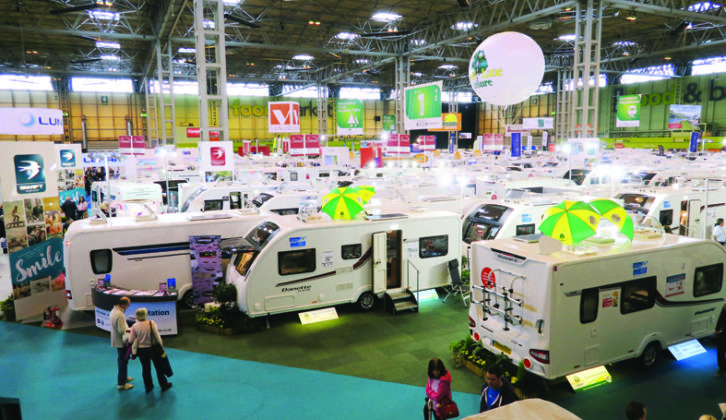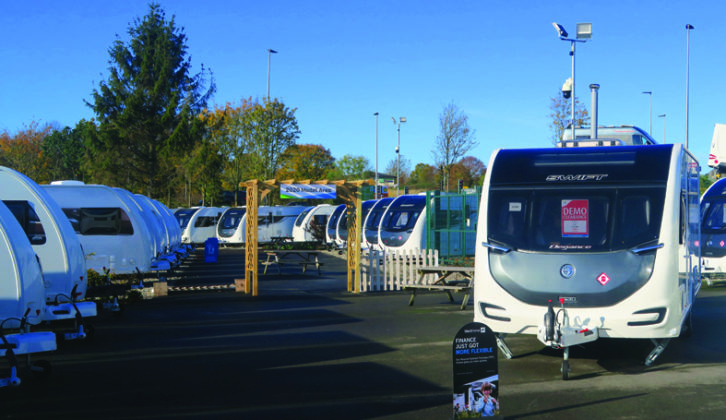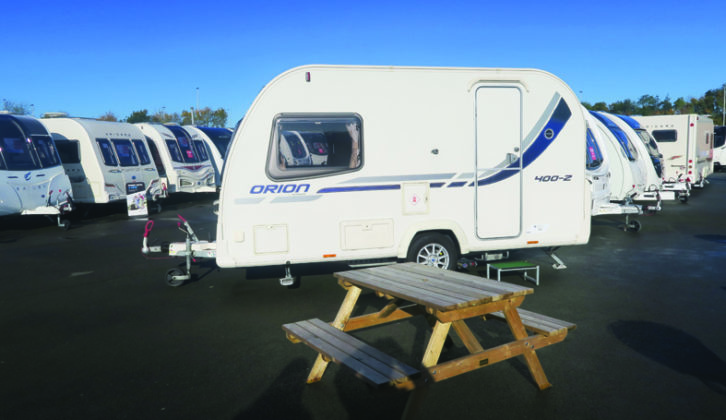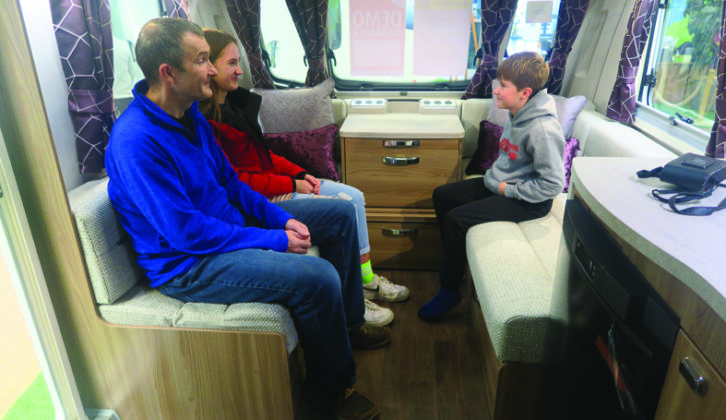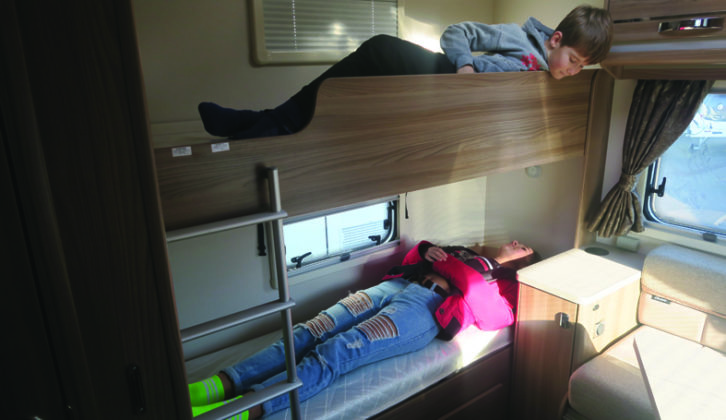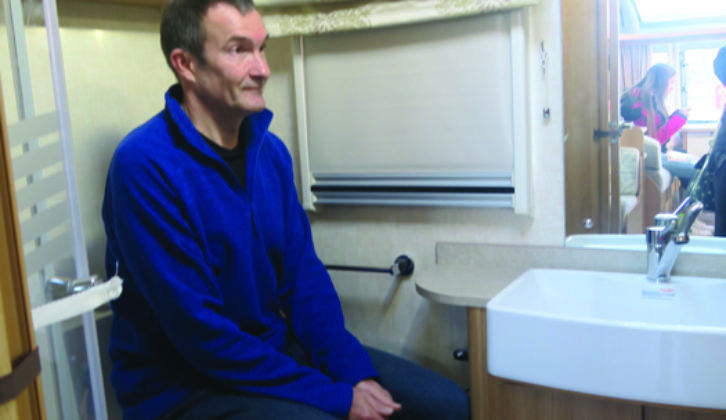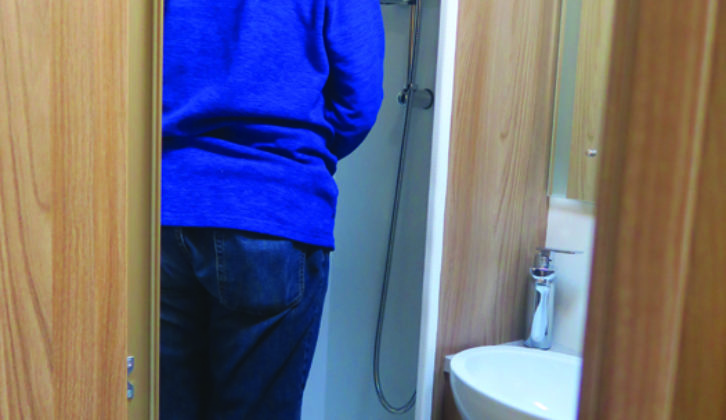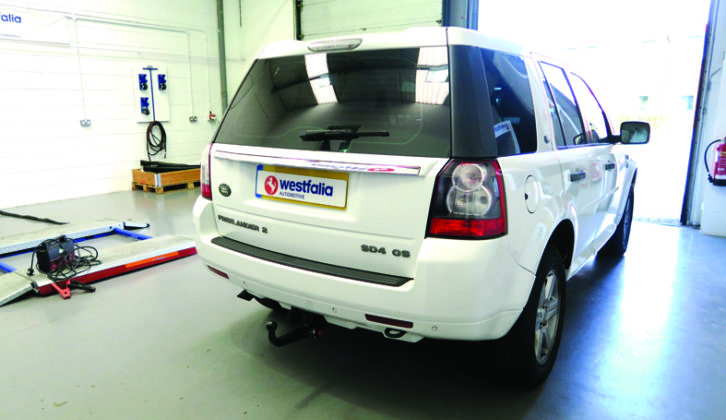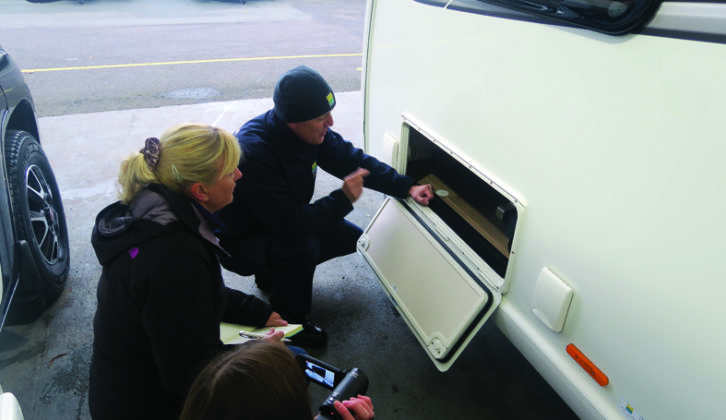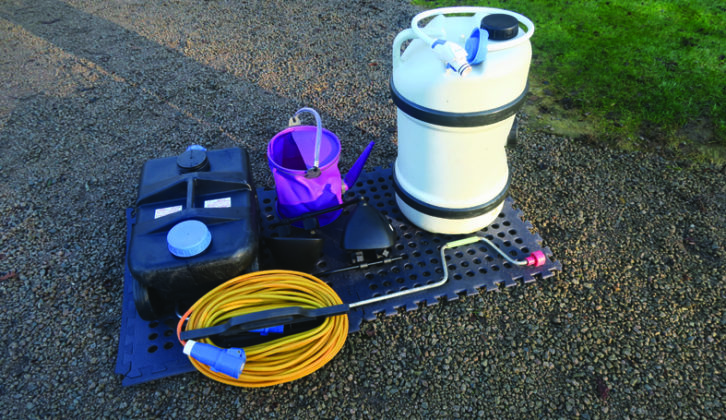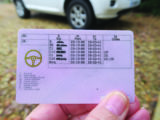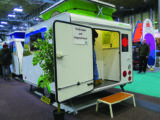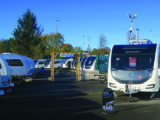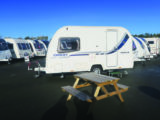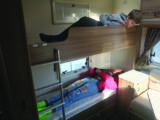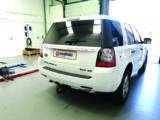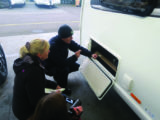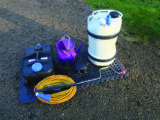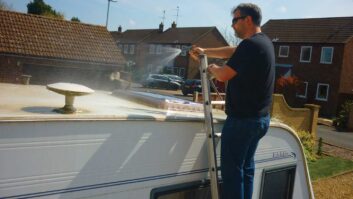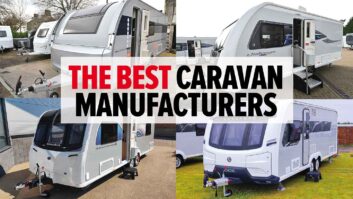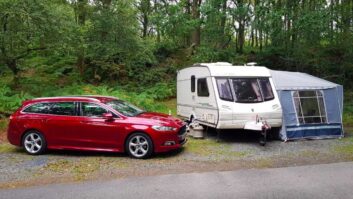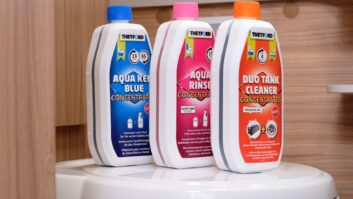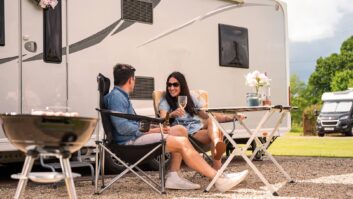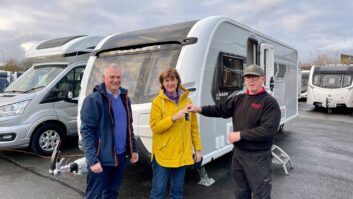Buying a caravan for the very first time can seem like navigating your way through a minefield. When I bought my second van, in November 2019, it took me more than a year to find exactly the the right one – and I work in the industry!
It’s a significant outlay, and there are so many elements to consider and things first-time buyers might not be aware of.
This article should, I hope, help to answer key questions, allay any worries and make this an easier, less stressful process.
Licence restrictions
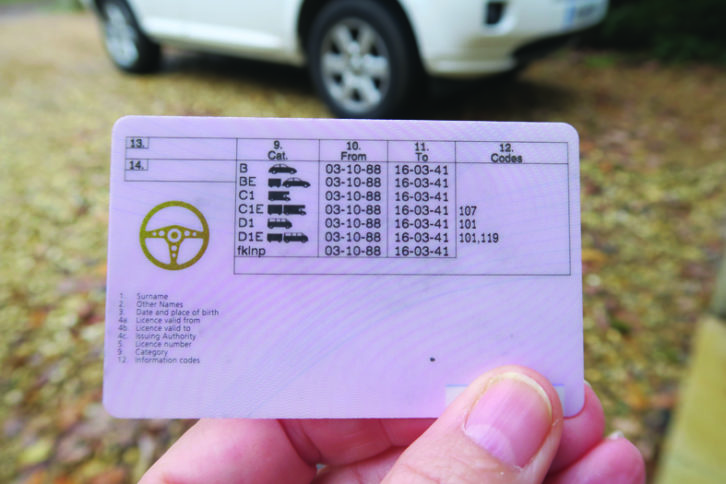
First, and most importantly, does your driving licence allow you to tow a caravan? And if so, what weight of van should you be looking at? The rules on what you can tow vary, depending on when you passed your test.
So, before parting with your hard-earned cash, take a look at the reverse of your licence, to check which permissions you have. The Government website lists the rules as follows:
Licences issued before 1 January 1997
Category B+E permission allows you to tow a van of over 750kg. In fact, you can drive a vehicle and trailer combination of up to 8250kg Maximum Authorised Mass (MAM). Also known as maximum technically permissible laden mass (MTPLM) for a caravan or gross vehicle weight (GVW) for a tow vehicle, this means the weight of a vehicle or trailer including the maximum load that can be carried safely when you are out on the road.
Licences issued from 1 January 1997
You can drive a car or van of up to 3500kg MAM, towing a trailer of up to 750kg MAM, or tow a trailer of over 750kg MAM, so long as the combined MAM of the trailer and towing vehicle is no more than 3500kg.
For example, if a Land Rover Freelancer is 2505kg MAM, you could tow a caravan of up to 995kg MAM on this licence.
While some lightweight vans are under 750kg, your choice will be more limited and they might not be suitable for a family.
In addition, as of 1 January 1998, if you are aged over 70 years and your driving licence has expired, you must pass a medical and an eyesight test. Visit www.gov.uk/towing-with-car for further advice.
Tow car match
You can’t just tow any caravan with any vehicle: your car’s power and weight are crucial considerations when you decide to take up touring.
A carefully loaded caravan should not weigh more than 85% of its tow car’s weight. However, this is not a legal requirement and experienced caravanners sometimes tow vans weighing almost as much as the tow car itself.
Note that, where stability and safety are concerned, the caravan must not exceed the weight of the car.
If you are a member of the Caravan and Motorhome Club or The Camping and Caravanning Club, check their outfit matching services, which can help you to identify which size caravan you car will tow.
Dealer or private sale?
So, you now have a fair idea of the size of tourer you might be looking for. The next step is to take a good look around.
In the first instance, I would recommend visiting one of the many national shows that are held throughout the year (social distancing rules permitting).
They really are a good way to view the latest models, from Europe and the UK. You can also undertake a manoeuvring taster course, buy accessories and talk to the experts.
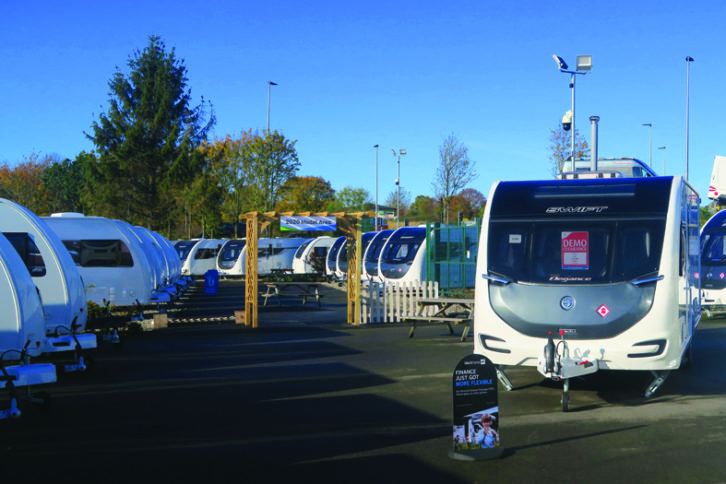
Dealerships will normally have the very latest tourers on their forecourts, in addition to some pre-owned caravans. They also offer buyers greater protection, for example with added warranties.
However, to maintain the warranty, you might have to service your outfit at that particular dealership, so make sure it is not too far from home. Unlike warranty work carried out on cars, where any franchised dealer can put things right, caravan owners may have to return to the supplier.
Purchasing from a private seller – be it at an online auction or through classified adverts – can mean that you pick up a bargain. Extras, such as awnings, water containers, leisure battery and so on, might be included in the sale price.
Check there is an up-to-date service record, otherwise that bargain could rapidly turn into a money pit.
Inspections, checks
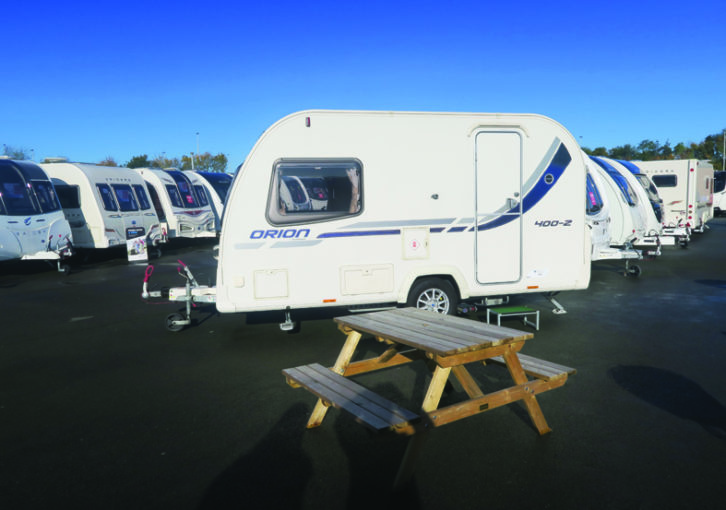
Always go and take a look at any caravan before you buy, and don’t rely on photographs. Don’t just look at the inside: make a thorough inspection of the exterior, and that means getting down on your hands and knees and carefully scrutinising underneath, as well.
Check the state of the tyres – it is recommended to replace them every five years. If there are signs of cracking or bubbling, they need to be replaced, and this includes the spare.
Ask to see the service book. This will verify that the van has been looked after and is in good working order; servicing should be carried out annually.
Follow your nose – if you can smell damp, there could be a leak (although be mindful that in winter, any stored caravan might smell a little fusty). Check the latest damp report from the most recent service.
Carry out your examination with a fellow caravanner – they will know through experience what to look for. Alternatively, contact a mobile engineer; some are happy to offer an opinion.
Since 1992, all caravans made by manufacturers recognised by the National Caravan Council have a vehicle identification number (VIN) stamped on the windows and chassis.
This unique 17-digit number is linked to the database for the Central Registration and Identification Scheme (CRiS).
The CRiS check will help to identify if a caravan has been reported stolen, if there is any outstanding finance, if it has been written off by an insurance company, and the name of the registered keeper.
Layouts
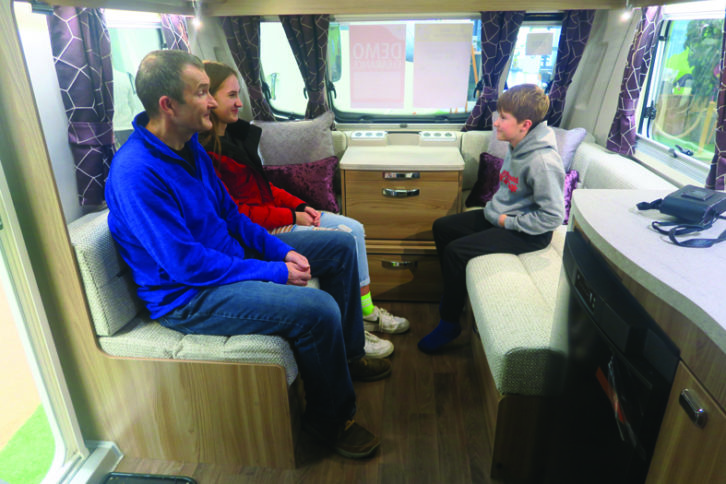
Last but definitely not least, it is crucial to find a caravan with an internal layout that is just right for you, because there are lots of different possibilities.
Are you looking for a cosy little two-berth, or do you need a generous family six-berth? Single- or twin axle? Fixed bed or bunks? Washroom in the middle or set to the rear?
It’s essential to get this right. We are the third owners of our caravan – the previous owners were not happy with the layout, and it is only a year old!
Do some research and then sit down with the people you intend to travel with, including any children. Write a wish-list of what is important to all of you, bearing in mind that there might have to be compromises.
Involve the whole family in viewing caravans. Lie down on the beds to check length and comfort, look inside the lockers to asses the amount of storage and – although it might seem silly – sit on the toilet to check leg room. You’ll be surprised how much this can vary!
Buying a caravan, pre-owned or new, can be very costly, so it is important to get as close as you can to your ideal model.
Final thoughts
This is a snapshot of a few of the essential things to consider before you buy your first van.
It is a big purchasing decision, so doing all of that research can save you a great deal of stress!
If you’re still unsure, take a look at the ‘try before you buy’ schemes, where you can hire a caravan for the weekend.
Additional costs
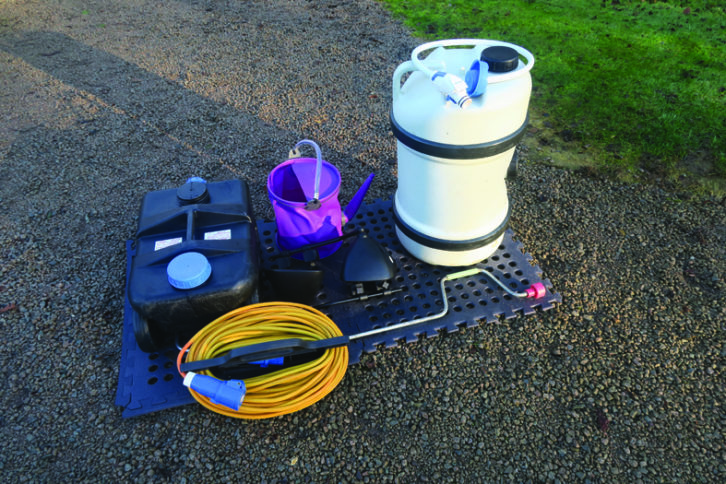
Owning a caravan does involve some extra outlay. Here are a few things you will need to investigate:
- Towbar and fitting
- Number plate to attach to the rear of the caravan
- Towing mirrors
- Storage costs at home, in a commercial unit, on a farm, or at a campsite
- Insurance and breakdown cover
- Annual habitation service including a damp check
- Gas cylinder, leisure battery, water pump, fresh- and waste-water containers, 25m hook-up cable (not always included)
- Security hitch locks, wheel locks
- Alarms and trackers
Sammy visits a dealership
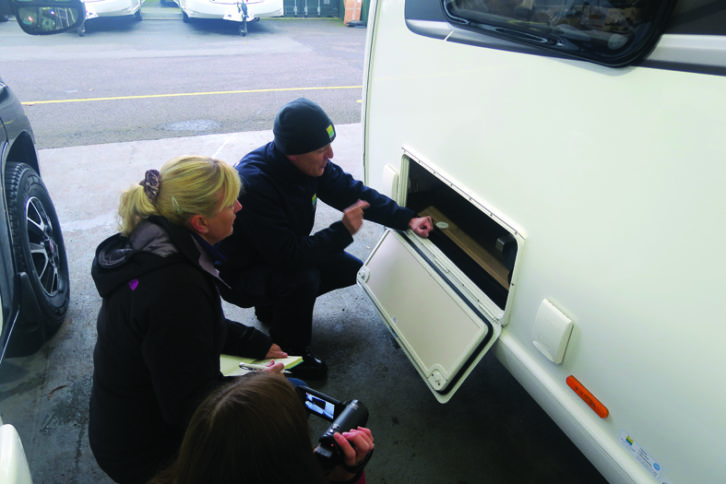
Our latest visit to a dealership (Salop Leisure, which has branches in Shropshire, Powys and Worcestershire) was very positive. The whole family were made to feel like VIPs and the handover was incredibly detailed. There is a lot to take in when picking up a new caravan, so the reference video helped enormously. The handover was carried out under cover, which was a good thing – it poured with rain and even began sleeting at one point!
If you liked this… READ THESE:
What you need to know about gas
If you’ve enjoyed reading this article, why not get the latest news, reviews and features delivered direct to your door or inbox every month. Take advantage of our brilliant Practical Caravan magazine SUBSCRIBERS’ OFFER and SIGN UP TO OUR NEWSLETTER for regular weekly updates on all things caravan related.
You can't just tow any caravan with any vehicle. Your car's power and weight are crucial considerations when you decide to take up touring
